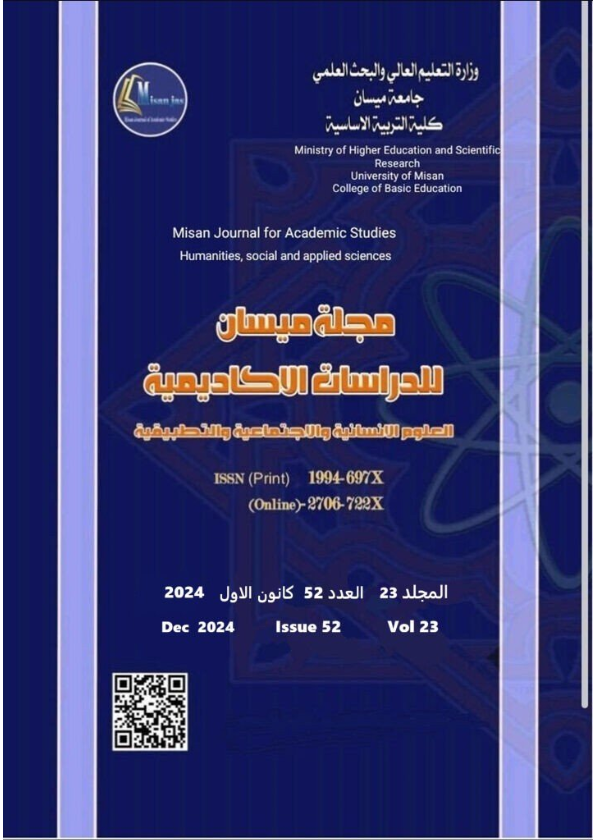The Systemic Heterogeneity in Adnan Al-Sayegh’s Poetry – with Reference to Group (Text Dice)
Abstract
Formative heterogeneity is an intellectual and cultural mechanism represented by Adnan Al-Sayegh to reveal the repercussions of reality, and to clarify conceptual relativism, and its impact on the growing significance of ideas, with the aim of renewing the intellectual prevailing and revealing its shortcomings. This orientation, intellectual in its implicit introductions, and aesthetic in its gender proposal, is part of the prevailing thinking represented by the postmodern world and represented by the poet himself, who does not believe in the stability of references and the permanence of referring them to fixed formulas, as poets who lived through two stages (the stage before the change inside or outside Iraq and the stage after 2003). Especially those outside paid attention to the problem of the contradiction between the act and its manifestations (through the current living and the prevailing history, and they tried (and the poet is one of them) to clairvoyance of this difficult moment that Iraq is going through during sectarian wars and the emergence of militant groups that introduced it into a fierce confrontation caused by overlapping and intertwined narrative blogs). Thus, text dice is a readership / qualitative reaction to monitor this transformation (transformation in the Iraqi arena). Our technique to understand the idea of realistic and figurative transformation was mediated by the term heterogeneity that means transgression in its intellectual sense (identifying the problem and its contradictions and not rejecting or leaving it, and then involving the reader in the act of careful reading), and trying to get out of its board in order to stop the repercussions of reality and its imaginary justifications
Downloads
Copyright (c) 2024 (Humanities, social and applied sciences) Misan Journal of Academic Studies

This work is licensed under a Creative Commons Attribution-NonCommercial-NoDerivatives 4.0 International License.
The copyright is also the copyright of the magazine only.
All articles published in our magazine are subject to license terms
Creative Commons Attribution(CC BY-NC-ND 4.0) This license permits the content to be reproduced, redistributed and reused in whole or in part for any purpose free of charge, without any permission from the author(s), researcher or student.
Works submitted to Maysan Journal of Academic Studies for publication in the journal (CC BY-NC-ND 4.0) license terms. Where available content can be shared, distributed and replicated provided there is no commercial profit and appropriate credit must be given to the original source through sources or citations. It is mandatory to review any material used from other sources including shapes, tables, and images for re-use under the terms of the Creative Commons License (CC BY-NC-ND 4.0).Provided that there is no modification to the original content



